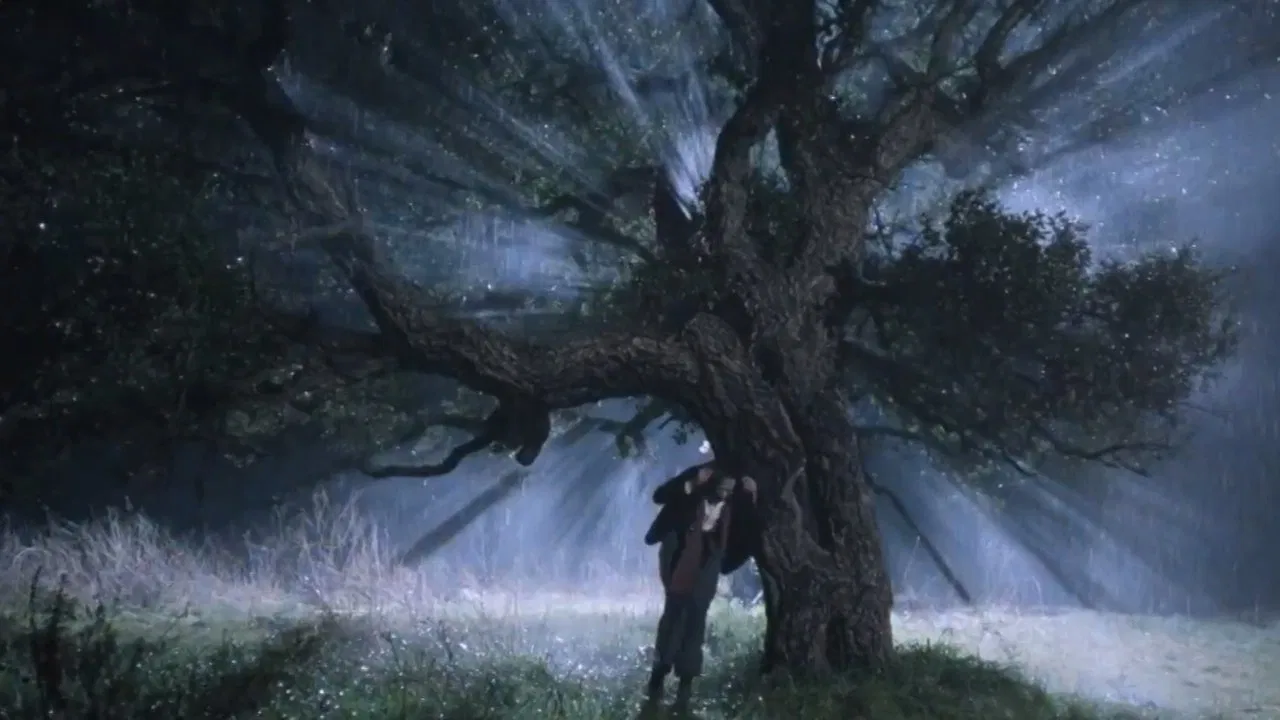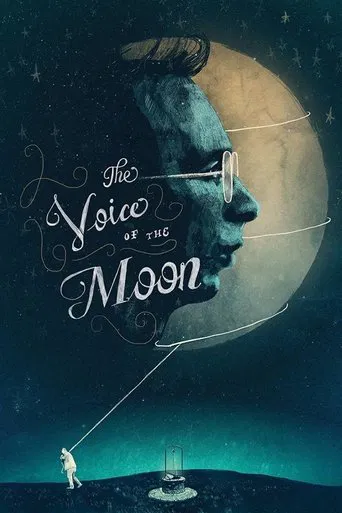

Yawn. Poorly Filmed Snooze Fest.
... View MoreFantastic!
... View MoreIt’s an especially fun movie from a director and cast who are clearly having a good time allowing themselves to let loose.
... View MoreThe biggest problem with this movie is it’s a little better than you think it might be, which somehow makes it worse. As in, it takes itself a bit too seriously, which makes most of the movie feel kind of dull.
... View MoreThe amusing and entertaining adventures of a recently released mental patient (Roberto Benigni) and his band of misfits, discover conspiracies to concur while looking for love.Acclaimed director Federico Fellini wrote a short treatment for this film in two weeks with his long-time scribe Tullio Pinelli as early as summer 1988. Returning to themes they first explored in "La strada" (1954), the duo crafted a parable on the whisperings of the soul that only madmen and vagabonds are capable of hearing.The film screened out of competition at the 1990 Cannes Film Festival, where it was panned, misunderstood and/or ignored by the majority of North American critics. One critic boasted, "Absolutely ravishing. I've never been so bored in my life". Ultimately, Fellini's last film became his first never to find a North American distributor. At least until 2017 (more on that shortly).One might think this is the sort of film that would grow in reputation over time. Those who saw it in 1990 likely did not know this was the final Fellini, and that alone should give it a special place in our hearts. Yet, critic Michael Scott pulls no punches when he calls the film "an unwanted, undercooked, post-meal main course, just as you are ready to slip into your pyjamas." He also says it is "the best example yet of the train wreck that can occur when you give a visionary unquestioned creative control but take away his glasses; it looks stunning but is nigh on incomprehensible." He does concede however that the "visuals ... rank up there with the most impressive of Fellini's entire body of work." Herein lies what, I think, makes the film worth a second (or third) look. The color scheme is striking, especially on the new (2017) Arrow Films Blu-ray with a new scan. The blend of fantasy, madness and reality is cleverly blended, with one scene of lovemaking while a rumbling train passes quite memorable indeed.The Arrow Blu-ray looks great, and does bring this Fellini to America for the first time ever. The special features are slim, but it does include an hour-long documentary on the film, which is really indispensable and perhaps would help change Mr. Scott's opinion? Certainly it puts the film in its proper place in the world of Fellini.
... View MoreI love how subtly the real mixes with the unreal in Fellini's movies to the point that you are not quite sure which is which anymore. I love the poetry, a mad poetry of love, mystery and revelations. Benigni's role in this film is glorious. This film is drenched in an art of dreamy quality. Paolo Villagio is great in this movie too carrying an entirely different madness to that of Benigni's character. I just love the structure of this film as well as the poetic script. This film really moved me into a hypnotic state. Fellini is the Jung of movies, taking you further and further, deeper and deeper into a trance and then finally after putting you through a maze, a labyrinth of complex psychological truths tells you "Now look!"
... View MoreNot many directors would choose the end of their career to head off in an entirely new direction, but that is very much what Fellini does here. This was his first film based on a novel (Ermanno Cavazzoni's "Il poema dei lunatici") and quite a radical departure in terms of style.In a move which apparently alienated many of his traditional audience, the film-world is almost entirely the one experienced by the central characters, Ivo Salvini and to a lesser extent Gonnella. This subjectivity of approach was of course used in "8 1/2" but in a less extreme and clearly autobiographical way. Here, Fellini makes the brave decision to keep contextualisation and explanation to a minimum, leaving the unwary viewer flailing about in search of a foothold. As Ivo's state of mind drifts between lucidity and hallucination, we seldom know what is 'real' and what is imagined, even down to the words spoken by other characters."Felliniesque" themes such as the love/fear of women, religious superstition and motifs like madonna statues and mountains of pasta are revisited from this rather skewed perspective, but the film overall has a dislocated feel which is far away from the likes of Roma or Amacord.Interestingly, Benigni is asked to act here, rather than doing his usual schtick, and does well as a Chaplinesque figure who occasionally reminds one of Guilietta Masina.This is certainly not what you might call classic Fellini (he confessed to a crisis of confidence writing it) but there is much to enjoy and to wonder at in this last work. The man himself regarded it as the "orphan" of his films and hoped it would come to be better regarded.Devotees of Terry Gilliam will note the original of the waltz scene lifted for the following year's "Fisher King".
... View MoreIt is a pity that Fellini's last film is not better known as it represents something of a return to form after a series of disappointments. .Fellini's visual imagination is still intact but some of the wonderful precision of imagery is no longer present. Perhaps by the end of his career too many of his old collaborators had died or retired. The best part is the first half hour seen entirely from the perspective of the insane central characters. Their obsession with the moon provides the alibi for many evocative night shots, (I've often thought that one thing that distinguishes great film makers is how they film the night), as well as the spectacular climactic sequence when they imagine that they have trapped the moon. Elsewhere there is typical Fellini fun with the crowning of 'Miss Flower' complete with an outsize King and Queen of the Gnocci and a final shower of flower on all the contestants. 'La voce della Luna' shares much of 'Ginger and Fred's' distaste for the contemporary world summed up in a sequence in which a disco rave is interrupted by a Strauss waltz. This is far more poetic and unexpected than anything in the predictable 'Ginger and Fred'. Those worried by the narrative incoherence of Fellini can bury their boring heads in a screen writing manual. Perhaps the current international popularity of Roberto Benigni, little known outside Italy when the fim was made may yet allow this flawed but haunting film to gain the audience it deserves.
... View More